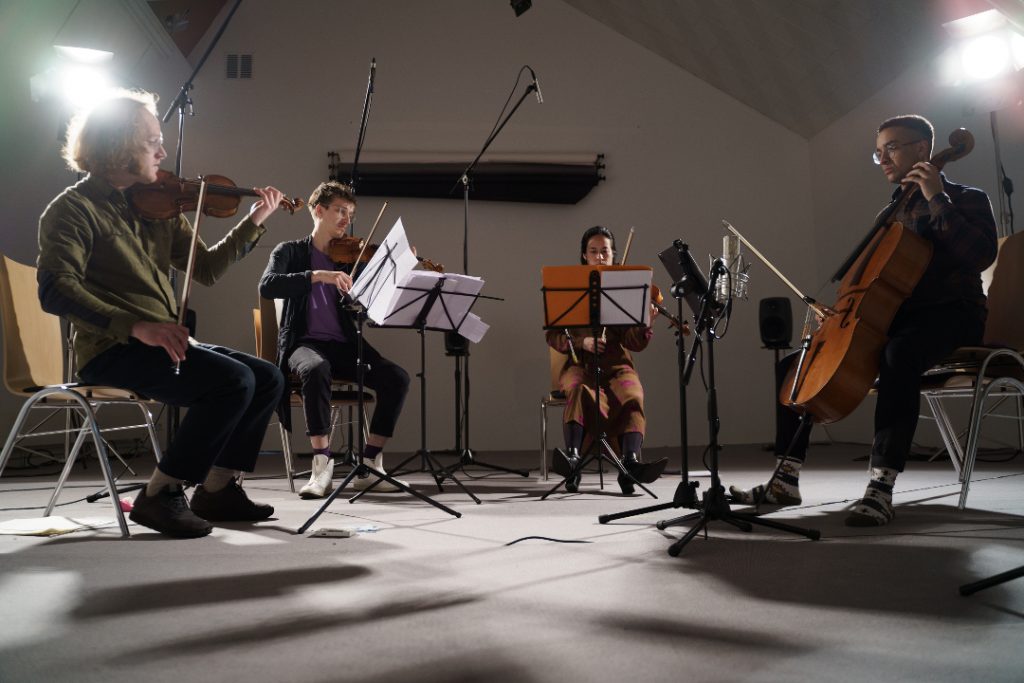
for string quartet (2021), 9 min.
commissioned work as part of BTHVN 2020
Each word is a (sound) landscape, viewed acoustically and metaphorically: the different sound properties of each word result from the composition of individual phonemes, each of which is soft, hard, bright, murky, hidden, exploding, spreading, fuzzy, subtle, disembodied, ambiguous, androgynous, flowing, … can be. With the help of spectral analysis, I approach the sound of each word in such a way, that I can feel the most intimate point of contact, in which the sound and noise components unfold individually and at the same time intertwine. I project this sensual experience of how each syllable makes contact with the other and their colors mix onto the soundscape of my string quartet.
The textual basis that served me in my musical analysis of language was a Zen-Buddhism speech by Master Yunmen. Along with other Daoism texts, I got closer to the speech and looked for a way to bring it into a dialogue with the Bible text. In the depths, the “Word” meets: on the one hand, the Word has become “flesh” (John 1:14) and remains forever (Isaiah 40:8), on the other hand, the Word “empties” and should better be forgotten (Zhuangzi: ” Reusen parable”). I reflect this embodiment and concealment in my music.
An moment in Goethe’s “Faust” there is philosophizing about the best possible German translation of the beginning of the Book of Revelation. The ambiguity of the ancient Greek expression “Logos” [λόγος] is crystallized: From “In the beginning was the word”, via “In the beginning was the meaning” and “In the beginning was the power” Faust finally arrives at “In the beginning was the deed “. The character “道” [/tɑʊ̯⁵¹/ spoken; “Dao” in alphabetic] has several “neutral” contents: it can be understood as speech, word, way, reason, rule, lesson, method, … depending on the context. With this cultural understanding, the same Bible text was theologically interpreted in the Han-Chinese translation (Chinese Union Version, 1910) as: “In the beginning was the Dao.” The transformation from words to music also reflects this variety of interpretations and articulations.
PULSE
Johannes Haase (violin)
Joosten Ellée (violin)
Yuko Hara (viola)
Jakob Nierenz (cello)
performances
from 02.2022 | digital | Schreyahner Gesprächskonzert | PULSE: Johannes Haase, Joosten Ellée, Yuko Hara, Jakob Nierenz
13.–19.06. 2021 | online | tritonus-Festival 2020/21 | »ausbrechende Subjektivität« Das Streichquartett in Beethovens Spätwerk und im 21. Jahrhundert | PULSE: Johannes Haase, Joosten Ellée, Yuko Hara, Jakob Nierenz